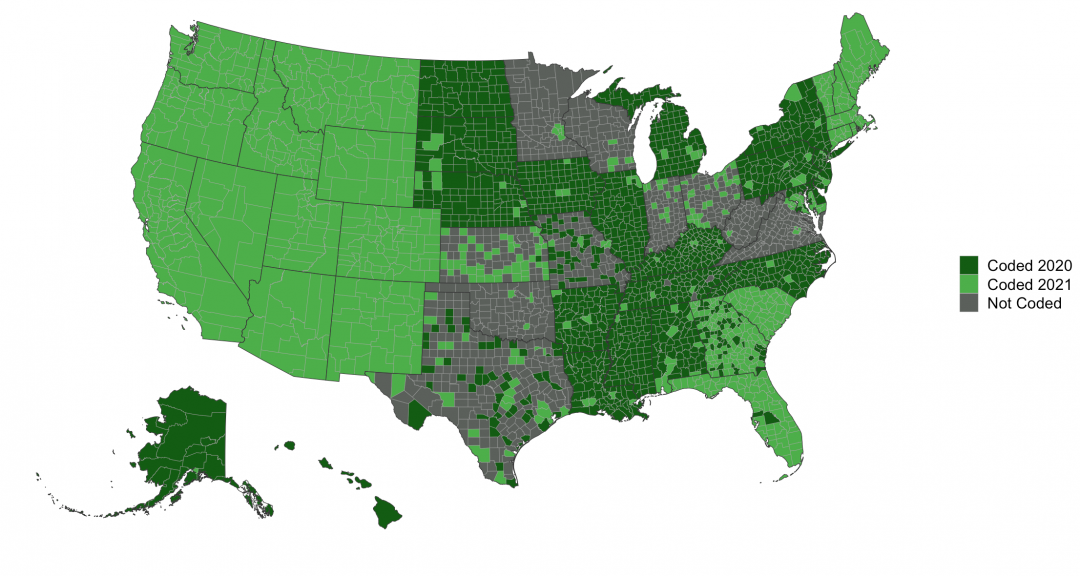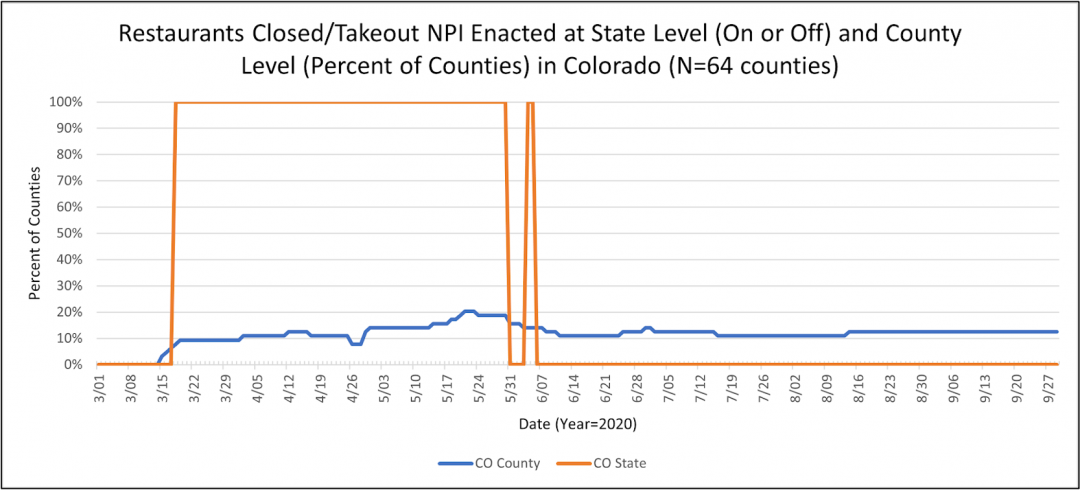Non-pharmaceutical interventions (NPIs), particularly social distancing policies, are the primary policy lever available to state, county and municipal governments to reduce the transmission of COVID-19. Though NPIs have been widely adopted across the U.S., individual states, counties, and municipalities have taken a diversity of approaches to implementation of NPIs, ranging from strictly enforced stay-at-home orders to voluntary recommendations that affect only specific types of businesses.
To date, these policy decisions have been made with limited empirical evidence regarding how passing, loosening, and lifting NPIs might affect disease spread, the likelihood of resurgence, or economic impacts to businesses. Epidemiologists are unable to accurately predict how particular implementations of NPIs affect disease spread, and policy makers do not have the information needed to ease restrictions without prompting disease resurgence.
We are developing a one-of-a-kind database of NPI measures implemented in the U.S. that measures and tracks variation in spatial scale, scope, mandatory nature, and temporal duration of NPIs adopted at the state, county, and municipal level. This database will be unique for the institutional granularity of how NPIs are coded, and the number of specific interventions coded for each observation (45+ total interventions).

Outputs Underway
1) a database of NPIs for all 50 states, ~3,000 counties and sample 100 municipalities with a population greater than 25,000 and;
2) a web-based platform for geospatial analysis of NPIs - serving these resources along with summaries of initial data analyses to the public health and epidemiology research communities and to state, county, city policy-makers.


